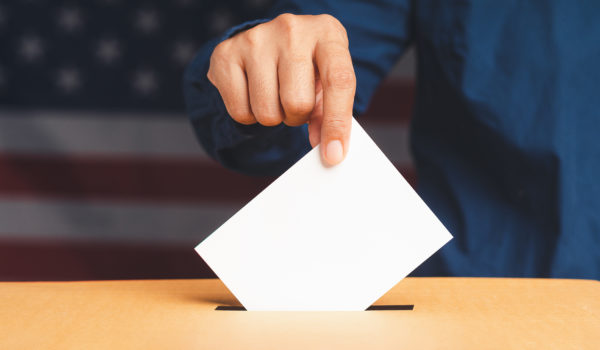The National Labor Relations Board (NLRB) has adopted a new rule reducing employee free choice over union representation. The new rule becomes effective on September 30, 2024, under the ironic title, the Fair Choice—Employee Voice Final Rule (hereinafter referred to as the “Fair Choice Rule”). It removes existing protections for employees’ right to vote on union representation by reinstating the Board’s pre-2020 position in three key areas:
- “Blocking” charges;
- Voluntary recognition of unions; and
- Construction industry union representation without employee choice.
The NLRB has stated the Fair Choice Rule is designed to: (1) safeguard employee rights to free choice in representation matters; (2) foster industrial stability; and (3) promote collective bargaining practices. However, skeptics are likely to conclude the Fair Choice Rule merely signals a return to old problems—unions will be able to abuse the election process and delay legitimate employee efforts to decertify unwanted union representation.
The new rule will only apply to cases filed after September 30, 2024, and the new rule may not survive legal challenges that are expected to be filed. This hope is increased due to the Supreme Court’s recent decision in Loper Bright Enterprises v. Raimondo, 144 S. Ct. 2244, 2273 (2024), that dispensed with Chevron deference (i.e., judicial deference given to a federal agency’s interpretation of an ambiguous statute).
Nevertheless, with the new rule’s effective date quickly approaching, employers confronted with union activity should work with their labor counsel to prepare for the pro-union changes in the Board’s election procedures.
Key Provisions of the Fair Choice Rule
1. The Return of “Blocking” Charges
Under prior rules, the Board’s “blocking” charge policy provided regional directors with authority to delay processing election petitions in the face of pending unfair labor practice charges. Regional directors would thus contend employer conduct interfered with employee free choice in an election or inherently conflicted with the election petition itself. Unions frequently abused this “blocking” charge policy to forestall employee efforts to vote out their union. Accordingly, in April 2020, the Trump Board implemented a rule generally requiring regional directors to conduct an election even when an unfair labor practice charge and blocking request had been filed. Under that rule, regional directors were required to immediately open and count ballots except in limited circumstances.
The Biden Board’s new rule reverts to the Board’s prior applicable law in this area. Going forward, regional directors will again have broad authority to delay election proceedings—including a decertification vote to remove an existing union from the workplace—when a party to the representation proceeding requests that its unfair labor practice charge block an election.
2. The End of the 45-Day Decertification Petition Window
The NLRB’s new Fair Choice Rule also takes away employees’ right to obtain a secret ballot vote if their employer voluntarily recognizes a union. Currently, employers may voluntarily recognize a union but employees have a 45-day period to demand a vote to determine whether a majority really want the union. If employees request a vote, the employees are freed from the union unless a majority vote for union representation.
The Fair Choice Rule puts an end to the employees’ right to demand this secret ballot vote. Once an employer voluntarily recognizes a union, based upon the union’s claim of majority support without an election, employees will no longer have a 45-day window to demand a secret ballot vote. The union has between six months to one year, depending on the circumstances, to speak for the employees. If the employer and union enter into a collective bargaining agreement within that period, employees are stuck with the union for the full term of the agreement up to three years. Employees will now only be able to obtain a secret ballot election over union representation if the union fails to secure a contract before this six-month-to-one-year negotiation period expires.
3. Accelerating Unionization in the Construction Industry
The Biden Board’s Fair Choice Rule jettisons the prior rule governing the application of the voluntary recognition bar and contract bar in the construction industry. A detailed discussion of the interplay between Section 8(f) and Section 9 of the National Labor Relations Board is beyond the scope of this advisory. Suffice it to say, the Fair Choice Rule obviates the requirement of majority employee support. Rather, it reinstates the ability of a construction employer and a union to simply enter into a “prehire agreement” establishing the union as the exclusive bargaining representative.
Takeaways for Employers
- Unless legal challenges dictate otherwise, the Fair Choice Rule will go into effect September 30, 2024. It will not be applied retroactively.
- The new rule will permit unions facing decertification to simply file an unfair labor practice charge in order to stall the decertification process.
- Once voluntarily recognized, unions will enjoy a complete six-month bar against decertification petitions.
- Employers should consult labor counsel in preparation for the changes that the Fair Choice Rule will bring.
Conclusion
Once it goes into effect, the Fair Choice Rule will cause the pendulum of labor law to swing back in favor of unions. Employers would do well to work with their labor attorneys to best prepare for the anticipated sea change.
If you have any questions about this article or other labor law issues, please contact the authors or any attorney in Frost Brown Todd’s Labor and Employment practice group.

